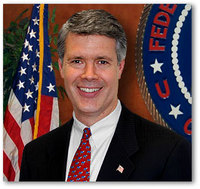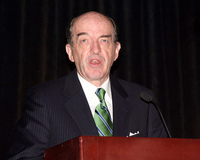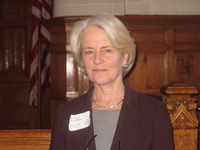
The Post has some interesting analysis of which FCC commissioners said what
when they approved Chairman Kevin Martin’s 700Mhz wireless auction plan:
The “open-access” provision was endorsed last month by FCC Chairman
Kevin J. Martin, a Republican, and gained support from the two Democratic
commissioners, Jonathan S. Adelstein and Michael J. Copps. Deborah Taylor
Tate, a Republican commissioner, also voted in favor of the deal. Martin
said he hoped the proposal would encourage a new entrant to compete with
the cable and phone companies that provide broadband service.
Republican Commissioner Robert M. McDowell voted against the proposal,
arguing that placing any conditions on the sale of airwaves would hurt
smaller carriers by making smaller licenses without any requirements
appealing to larger bidders.
“Smaller players, especially rural companies, will be unable to match
the higher bids of the well-funded giants,” he said.
—
FCC Approves Airwave Use For All Phones,
Wireless Network Opened To Options if Not Firms,
By Kim Hart,
Washington Post Staff Writer,
Wednesday, August 1, 2007; Page D01
It’s not clear to me where the bigger players will find enough smaller
licenses without any requirements to be worth their while.
Unless those licenses are also attractive because of the
Universal Service Fund.
What did the corporate players say?
Continue reading →









